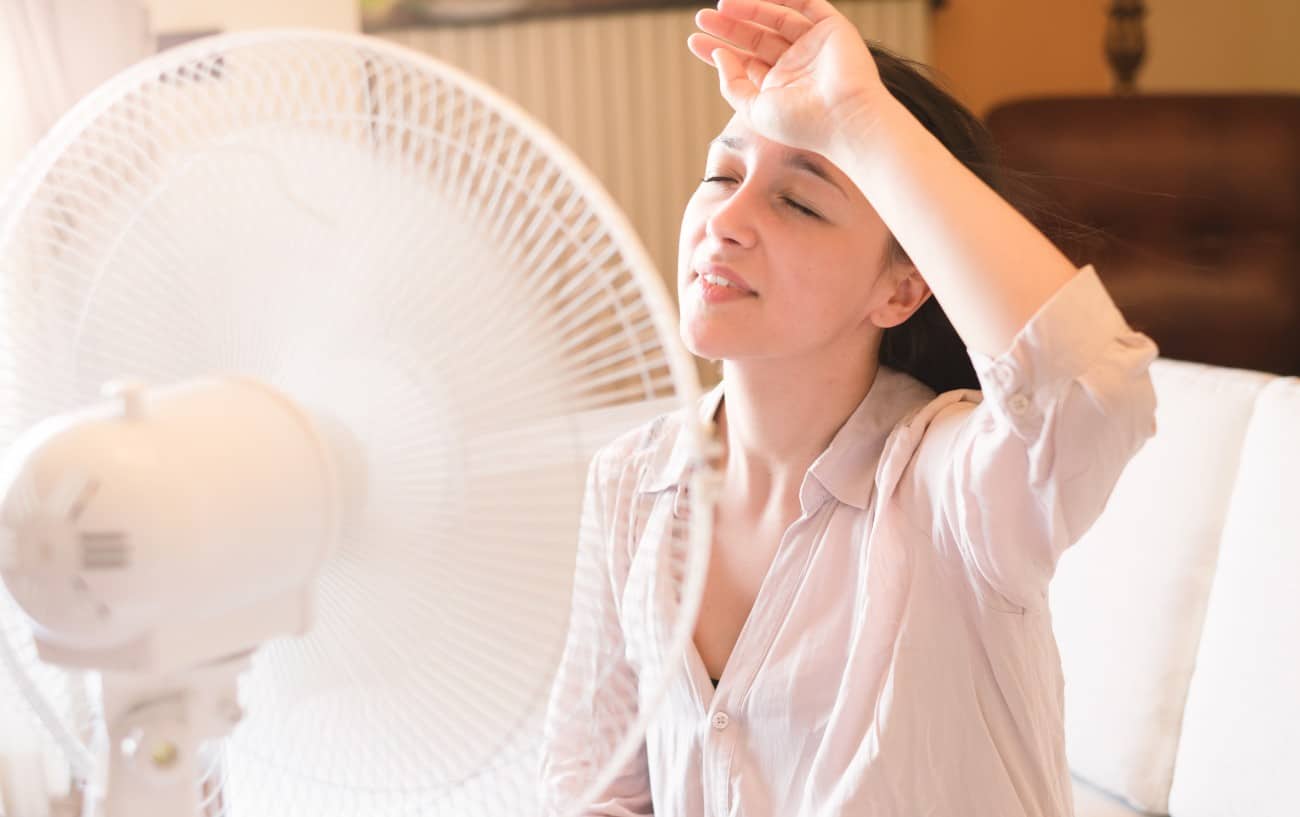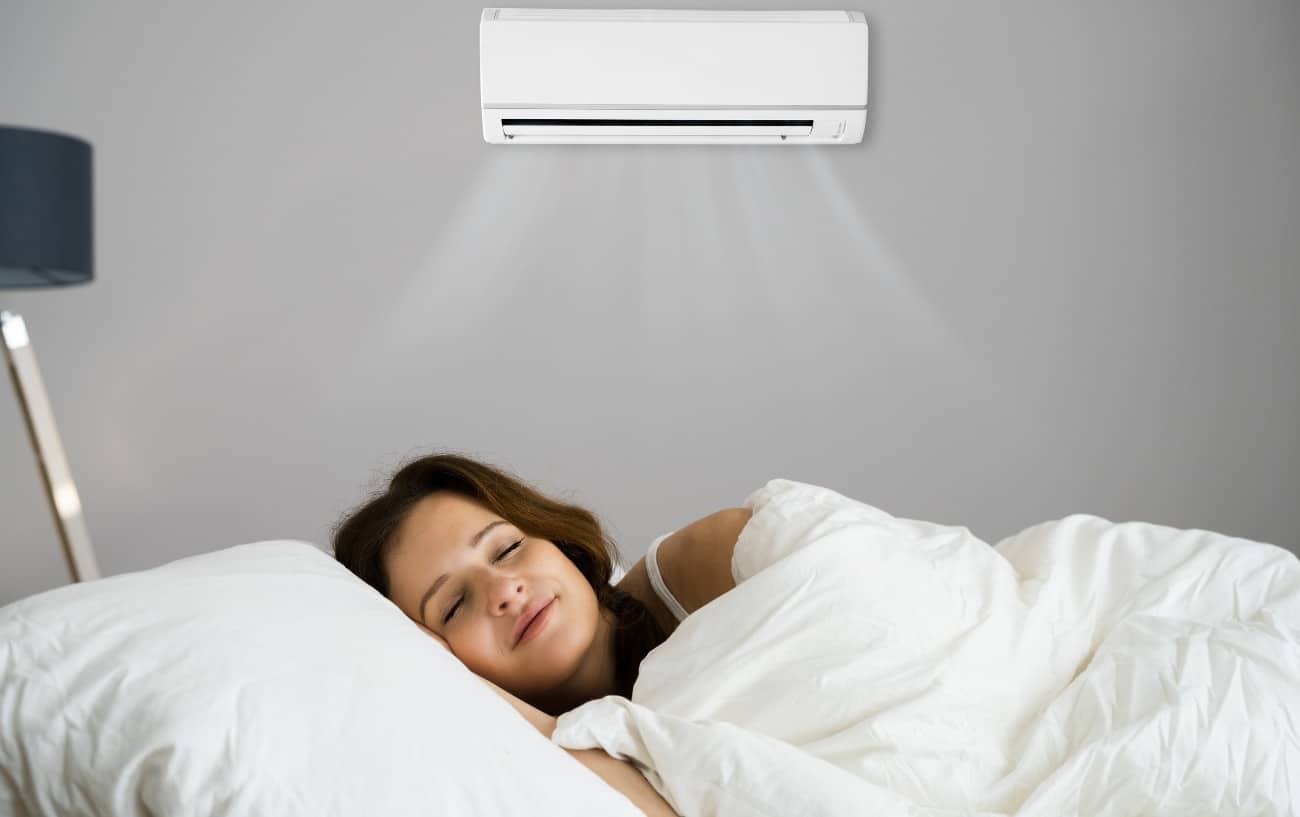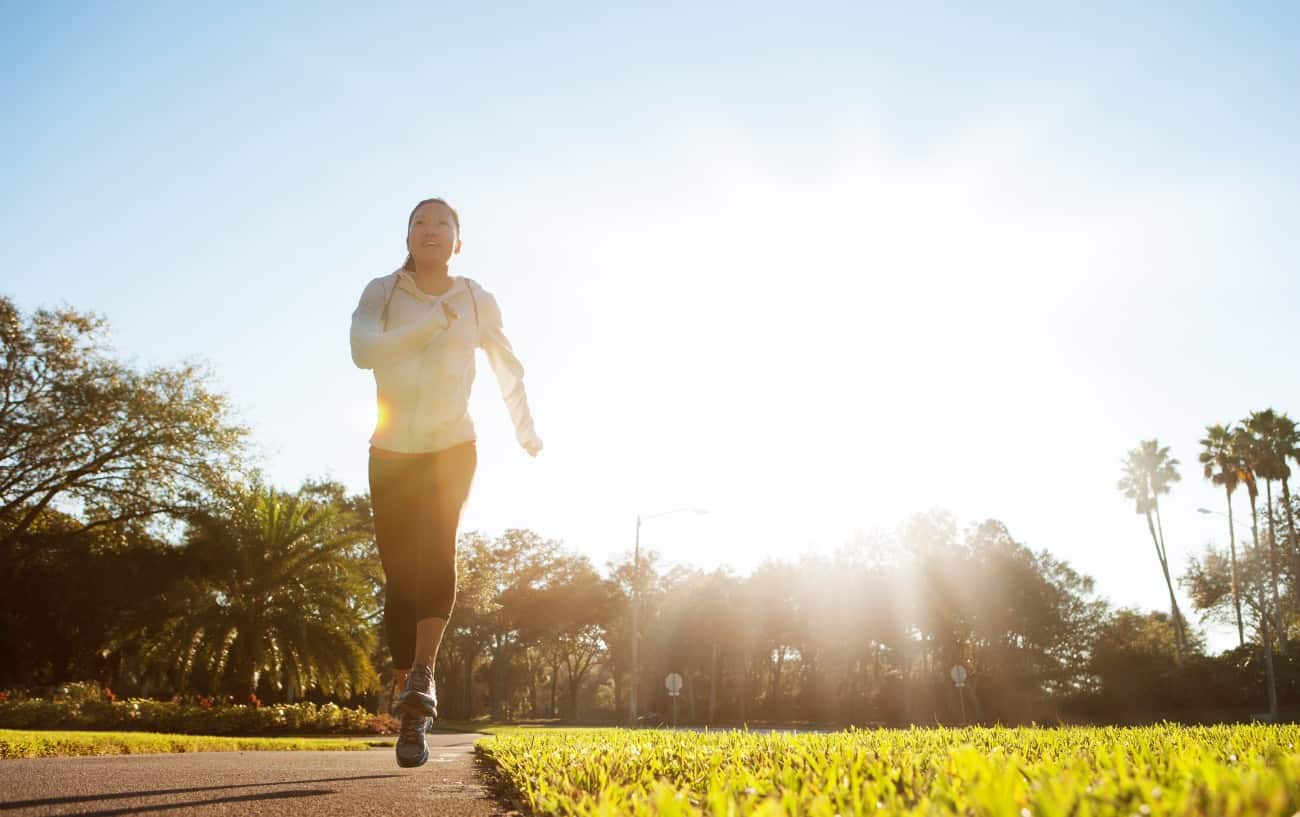After a full day of work, family responsibilities, and a hard run, there’s nothing more alluring than slipping under the covers and finally resting your head on your pillow to sleep.
While you sleep, your muscles continue to recover from your workout, repairing the microtears and replenishing muscle glycogen stores. If all goes well, you’ll sleep through the night and wake up feeling rested, recovered, and ready to run and do everything else on your docket for the day.
But, what happens if a few hours into your sleep you wake up soaked in sweat?
Night sweats from running or night sweats after working out isn’t as rare as you might think. And, night sweats after running are not only disruptive to what should be a restorative night of sleep, but they also can be concerning.
The good news is that in the absence of other concurrent symptoms like fevers and weight loss, night sweats from running are usually not a sign of anything serious. But what causes them?
Keep reading to learn why you’re having night sweats from running and what you can do to reduce the likelihood that you’ll wake up sweaty after working out.
In this article, we will cover:
- What Are Night Sweats?
- Can You Get Night Sweats From Running?
- Why Am I Getting Night Sweats From Running? 6 Causes of Night Sweats In Runners
- How to Prevent Night Sweats After Working Out: 9 Tips to Reduce Night Sweats From Exercise
Let’s get started!

What Are Night Sweats?
Waking up at night soaked in sweat for reasons other than your bedroom being unduly hot or using tons of blankets can be indicative of night sweats.
According to the Cleveland Clinic, night sweats are repeated occurrences of significant perspiration while sleeping. You may sweat so much that clothing, sheets, and bedding are soaked through.
Night sweats may be accompanied by skin flushing or chills along with a rapid heartbeat, depending on the cause of the night sweats.
Night sweats can be a symptom of various medical conditions such as hyperthyroidism, panic disorder, bacterial infections, viruses such as the flu, diabetes and other hormonal disorders, gastroesophageal reflux disease (GERD) leukemia, lymphoma, benign hyperhidrosis, and infectious diseases, such as tuberculosis and HIV.

Can You Get Night Sweats From Running?
The short answer is yes, you can get night sweats from running or working out.
So, before you start worrying about all the medical conditions that can cause night sweats, rest assured that exercise also has the potential to cause night sweats.
So, how do you know if your night sweats are from running or some sort of illness?
The first thing to consider is how and when they started. If the onset of your night sweats coincides with a change in your training—primarily an increase in volume or intensity or a change in the time of day you run—there’s a good chance your night sweats are related to your workout routine.
On the other hand, if your night sweats are accompanied by other symptoms of illness such as fevers, general malaise, loss of appetite, weight loss, and swollen lymph nodes, it’s a good idea to visit your physician for a more thorough workup.
Night sweats are also a common symptom of menopause, as the decrease in estrogen is thought to increase body temperature and cause rapid temperature fluctuations, which is why menopausal women may experience hot flashes and night sweats.

Why Am I Getting Night Sweats From Running? 6 Causes of Night Sweats In Runners
There are several possible ways that you might be getting night sweats from running, including the following:
#1: Increasing Intensity
Sudden increases in the intensity of your workouts can cause night sweats after running.
High-intensity exercise, such as HIIT workouts, hard speed workouts on the track, hills, and races can rev your metabolic rate even once the workout is over.
Referred to as excess post-exercise consumption (EPOC), or after burn, this metabolic boost after running or working out vigorously is due to increased workload of trying to repair the damage from your workout, replenish glycogen stores, and restore homeostasis.
Although normally when you prepare to fall asleep, your body temperature drops to help promote grogginess, after high-intensity exercise, your body temperatures may actually rise as a result of revving your metabolism.
If you don’t make compensatory changes to your bedding or bedroom environment, such as wearing less clothing, removing your duvet, or turning on a fan or air conditioner, you might wake up with night sweats from working out vigorously.
According to research, HIIT workouts and hard runs can increase your metabolic rate for up to 14 hours, so you can get night sweats from running hard, even if it was in the morning.

#2: Evening Workouts
Night sweats from running are more likely to occur if you exercise in the evening or before bed.
As mentioned, there’s the metabolic stoking effect from high-intensity exercise, but you can even get night sweats after running easily if your workout was too close to bedtime.
Physical activity increases body temperature, and it can take time for your temperature to drop to baseline, and dip the way it normally does when you sleep.
This is especially true if you ran in the heat, did a long or hard workout, or drank or ate hot foods after your run before bed.
#3: Increasing Your Training Volume
Just as increasing your training intensity can cause night sweats from running, so too can ramping up your volume.
If you’re running a lot more, or have added other forms of exercise to your training program, such as strength training or other forms of cardio, your thyroid may release more hormones that boost your metabolism.
This, in turn, increases your body temperature, and can prevent your temperature from dropping when you sleep.
The result? Waking up damp from your own sweat.

#4: Overtraining
Overtraining, especially when coupled with underfueling, can disrupt your hormonal balance, sending your metabolism into haywire
When you’re suddenly getting night sweats from running and have also been feeling pretty beat from your workouts, it’s a good idea to examine your training and nutrition and make sure you’re not overdoing it or under-eating.
#5: Eating Late Can Cause Night Sweats After Running
If you run late and then do a good job getting in your post-workout fueling, there’s an even greater chance that you’ll have night sweats.
Eating further increases your metabolic rate, especially if you’re having a protein-packed snack or something that takes some work to digest and break down.
Coupled with the metabolic overdrive induced by running itself, eating right before bed can spike your body temperature even higher.

#6: Low Blood Sugar
On the other side of the coin, hypoglycemia (low blood sugar) can also cause night sweats. Therefore, if you’re not eating for hours before bed, your blood sugar might be dropping too much overnight.
If you have concerns about hypoglycemia despite eating well and regularly, you may want to consult your physician to look at your fasting blood sugar levels and hemoglobin A1C.
How to Prevent Night Sweats After Working Out: 9 Tips to Reduce Night Sweats From Exercise
Although in some cases you can’t fully prevent night sweats from running, here are a few tips for reducing the chance that you’ll wake up sweaty:
#1: Exercise Earlier
Running too close to bedtime means that your metabolism is still going to be humming and your body temperature is going to be elevated before bed.
If possible, shift your schedule around and see if you can run earlier in the day.
Try to finish your work out at least 3 to 4 hours before bed.

#2: Do a Cooldown
If you are going to exercise in the evening, make sure you get in a good cool down to help facilitate recovery and get your body back to baseline.
Do some walking or easy movement along with some gentle stretches while your core temperature drops.
#3: Chill Your Body
The primary reason that you’ll have night sweats from running is because your body temperature is still elevated at night.
You can guide your core temperature down by taking a cold shower, sitting in an ice bath, drinking ice water, or eating frozen foods.
This may help pre-cool the body and assist the normal hormonal responses that lower your temperature before sleeping.
#4: Don’t Eat So Close to Bedtime
Since eating speeds up your metabolism, try to avoid consuming anything within a 2 to 3 hour window before bed.
If you are going to eat something. Try to choose cold rather than hot foods.

#5: Try a Magnesium Supplement
Magnesium is an essential mineral for the body, and also one of the key electrolytes runners need to support proper hydration, nerve function, and muscle contraction and relaxation.
Magnesium offers numerous benefits for runners, such as improving sleep and reducing muscle cramps.
Studies have found that magnesium supplements can reduce the occurrence of hot flashes associated with menopause, so they may help prevent night sweats due to hormonal fluctuations from exercise.
You can also skip the supplements and eat foods high in magnesium, such as pumpkin seeds, dark chocolate, white beans, avocados, milk and yogurt, beet greens, almonds, cashews, and dried prunes to name a few.
#6: Cool Your Bedroom
Cooling your bedroom with fans or an air conditioner can help offset the effects of your elevated body temperature while your body adjusts to increases in training load or after intense workouts.
The National Sleep Foundation recommends keeping the temperature of your bedroom between 60-67 degrees Fahrenheit (15-19 degrees Celsius) for optimal sleep.

#7: Make Gradual Changes to Your Training
The more gradual the increases in volume and intensity of your workouts, the less likely you’ll have night sweats from running.
It’s usually sharp, sudden changes that affect your metabolism enough to cause night sweats after running.
#8: Invest In Cooling Bedding
There are some excellent mattresses, pillows, sheets, and other bedding designed to regulate your body temperature and keep you cool at night.
For example, the Serta Arctic Cooling Pillow is a memory foam cooling pillow with Reactex®, a special technology that pulls heat away from the surface of the pillow in a matter of seconds.
This results in a pillow that is 30 times cooler than a standard pillow.
The Beautyrest Black mattress collection features all the support and motion attenuation you’d expect from a mattress with the added benefit of plant-based cooling technology, which helps provide up to 18% more cooling power for sweat-free sleeping.
#9: Be Patient
The good news is that your body will adapt to changes in training volume and intensity over time so your thyroid will stop inciting a metabolism-revving response, and you’ll be able to sleep through the night without getting night sweats from exercise.
Do make sure you increase your volume at safe rate, sticking to the 10% rule, that you can check out, here.













